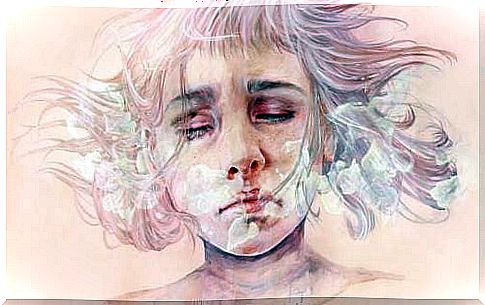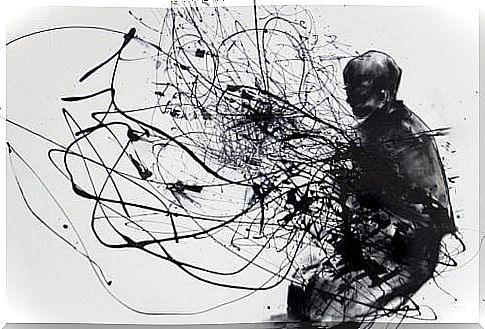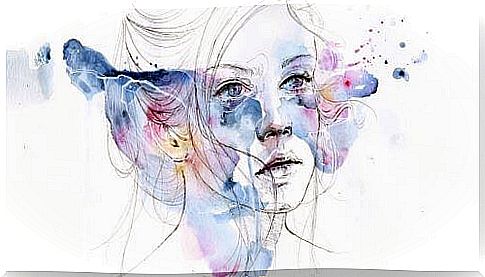Six Major Depression Symptoms You Should Be Aware Of

Major depression is one of the most severe forms of depression you can experience.
Today we live in a very advanced society, if you look at technological and social aspects. Yet the emotional world remains a problem for us. This world is made up of personal nooks and crannies that millions of people keep getting trapped in.
Depression is one of the most common illnesses in our world today. Nevertheless, it continues to have a silent and discreet impact, an unpleasant reality that not everyone can deal with or even want to talk about.
It’s common enough that other people say we just need to perk up a little and get ourselves going again. There are still plenty of people who think it’s a matter of shifting into another gear and just being happy.
So in reality, most people still associate depression with sadness. These people think you can overcome this problem by simply smiling more often and forcibly changing your mood. But actually, depression, and especially major depression, is much more profound and cruel than that.
We forget that sadness, in addition to a negative connotation, also has an adaptive value. It helps us to reflect, to look inside ourselves and to move forward. In the case of major depression, however, sadness is not at all adaptive, but quite the opposite.
It is a series of inner and very dark processes. These are acute and exhausting processes that drag the person confronted with them into a spiral of defenselessness.
In this article we are going to talk about these symptoms of major depression.
The symptoms of major depression
1. Anhedonia in Major Depression
In fact, being sad does not explain any form of depression at all. Major depression, in its most extreme form, is rather torturous and persistent.
What people mainly suffer from in the case of major depression is anhedonia, and its characteristics manifest themselves in the following way:
- Disinterest in the things around them.
- Lack of experiencing joy.
- extreme fatigue.
- Constant irritability.
- Lack of initiative.
- Inability to perform activities (not because this person has a physical problem, it is simply a lack of energy and urge to do things).
2. Some Symptoms Always Occur

According to the Diagnostic and Statistical Manual of Mental Disorders , there are five concrete symptoms that can be identified with this condition. These are symptoms such as:
- A depressed state of mind almost day in and day out.
- Decreased interest in the activities one previously enjoyed.
- Insomnia or sleeping too much.
- Weight loss or weight gain in a very short time.
- Concentration problems and the inability to make choices.
- Guilt feelings.
- extreme fatigue.
- Suicidal thoughts.
- Move slowly.
3. Aspects Not Related to Major Depression
This diagnostic manual also explains that there are a few dimensions that do not exist in the life of someone who suffers from major depression.
This means:
- Major depression cannot be associated with pain caused by the loss of a loved one.
- Nor can it be associated with divorce. Remember, this is a normal process that people go through when they lose someone or something.
- Major depression cannot be diagnosed if the person has suffered from manic attacks or psychosis or other types of disorders.
4. There is not just one form of major depression

Something that should be very clear when we talk about mental illness is that each case is unique. Every person is different and will therefore exhibit a range of unique characteristics. And it is essential to know how to treat these unique characteristics.
At the same time, it is also important to realize that there are generally two types of major depression.
These are the following:
- Severe depression in which a person has an attack only once in their entire life.
- Recitative depression: This form is much more complex and is actually much more common. There are plenty of patients who have already suffered from major depression during their adolescence and who will suffer from it a few more times later in life.
5. What is the cause?
Major depression is a very complex condition, involving all kinds of mazes and black holes – both for science and for the patients themselves.
This is because we are dealing here with a condition that, in general, does not have just one cause, but can have many different causes.
- In part, major depression is genetic.
- But your upbringing, education and possible trauma can also play a role.
- The adversities a person has experienced during his childhood, such as his social situation, can also be possible indicators.
- The personality of the individual also plays a determining role (low self-confidence, cognitive problems, learned feeling of helplessness).
- Financial problems and periods of crisis are also possible factors.
However, we should also not forget that major depression is, in many cases, a chemical problem: a decrease in dopamine levels, which makes it important to always receive the right medication.
6. There are several ways to treat major depression

To effectively deal with major depression, it is necessary to focus on all available options.
- The essentials, which no one can overlook, are medication and psychotherapy. These are the most appropriate cognitive and behavioristic treatments. Cognitive behavioral therapy, in particular, appears to be one of the best ways to treat depression.
- However, more emotional techniques such as rational imagination, assertiveness training and problem-solving techniques can also be used . These are all helpful tools to overcome any kind of depression or anxiety.
Each person should use the strategies that are most helpful to them to overcome their depression little by little.
Images by Agnes Cecilec









